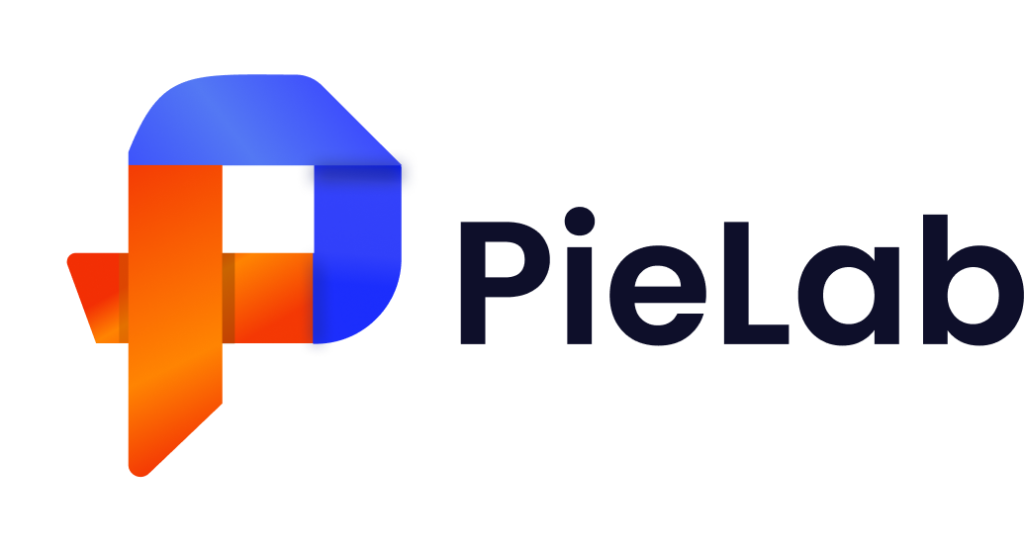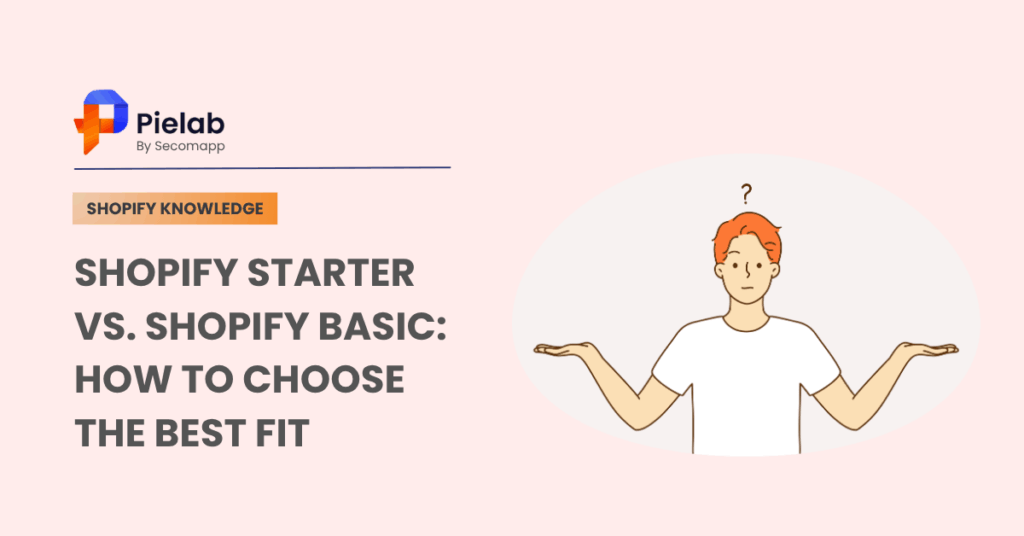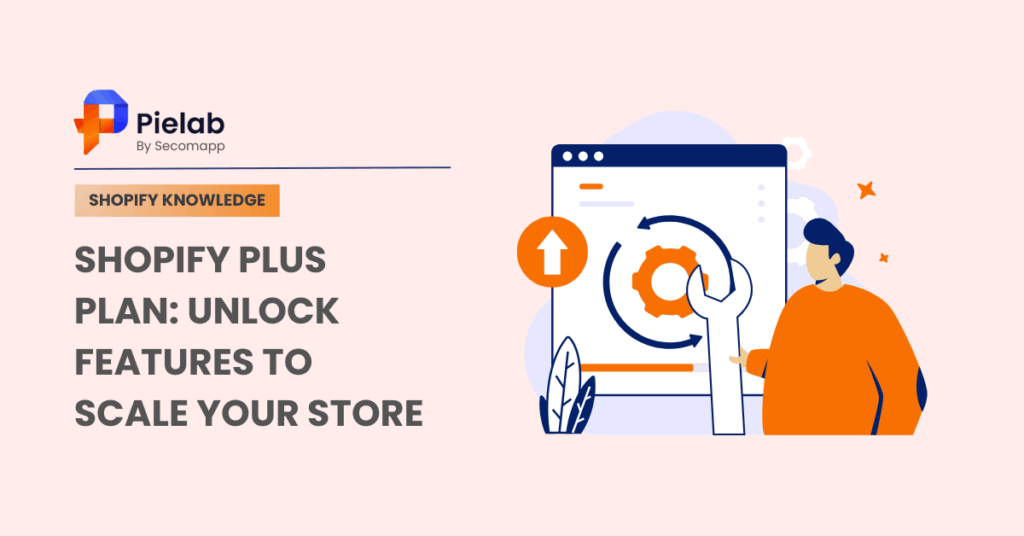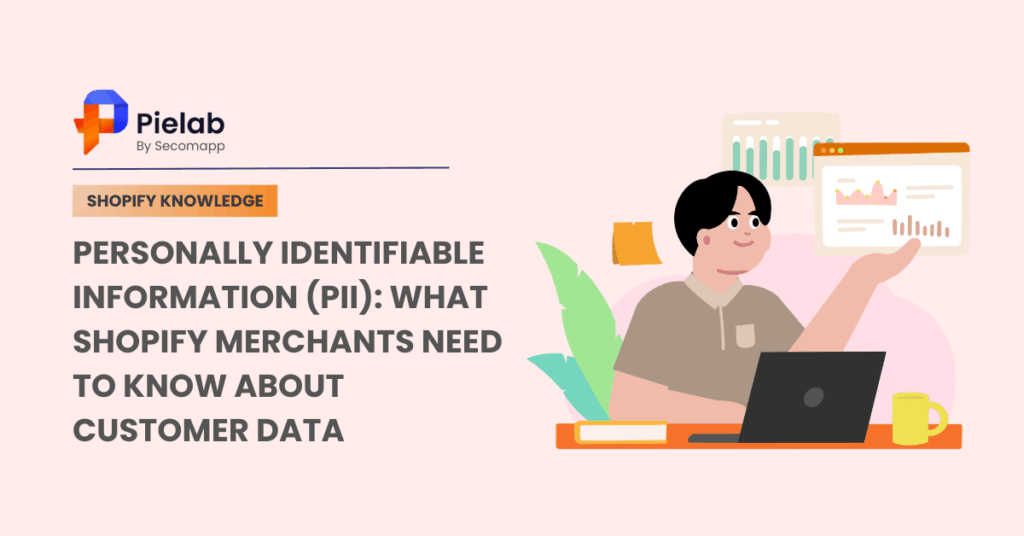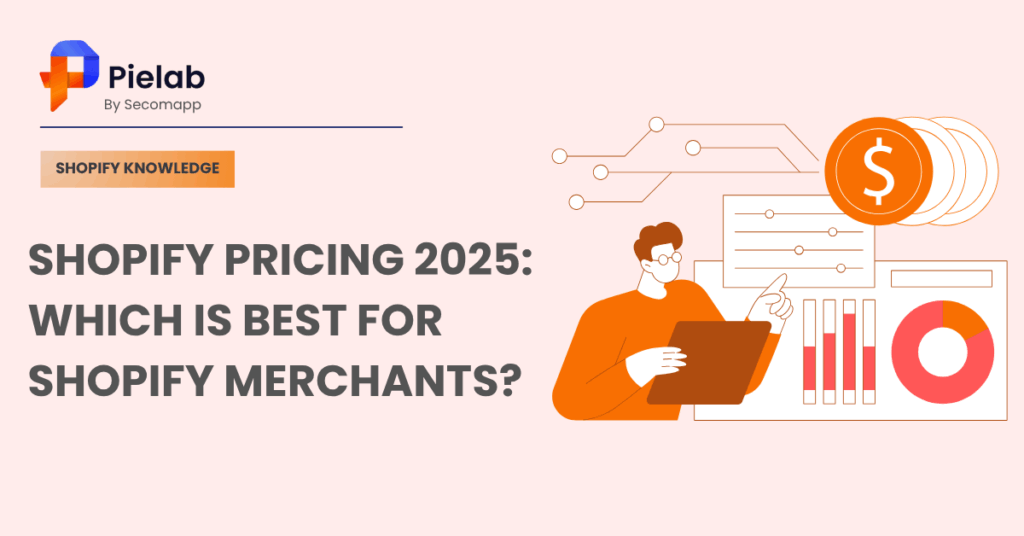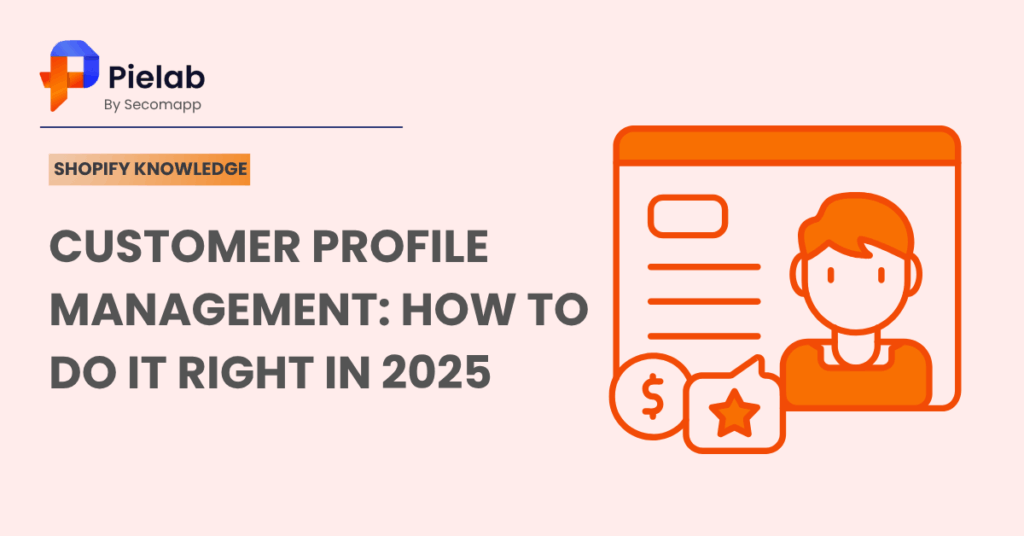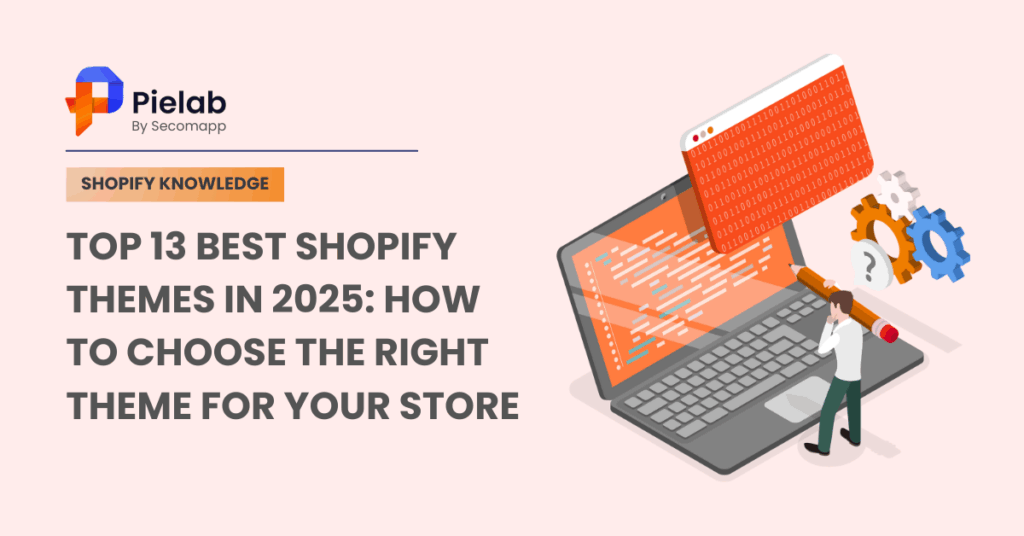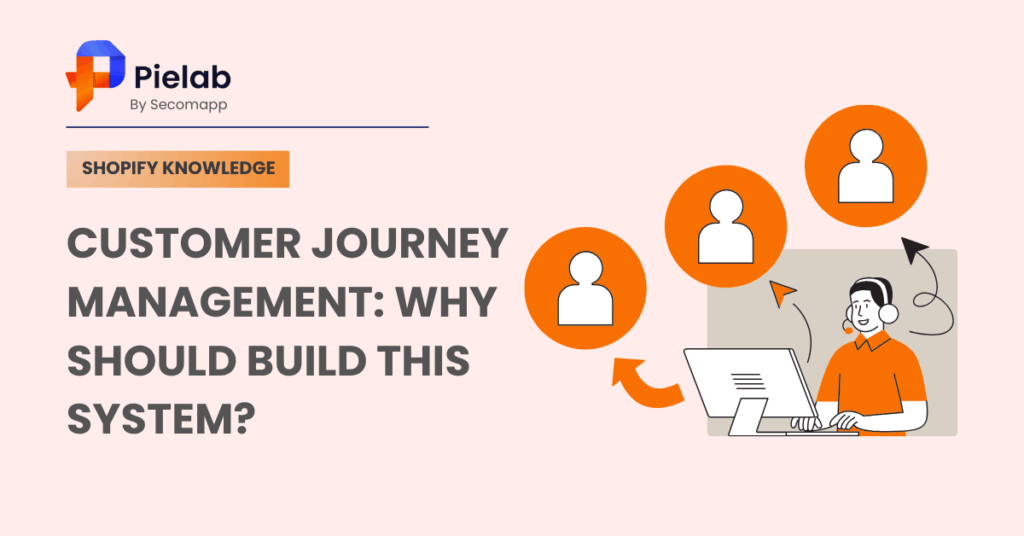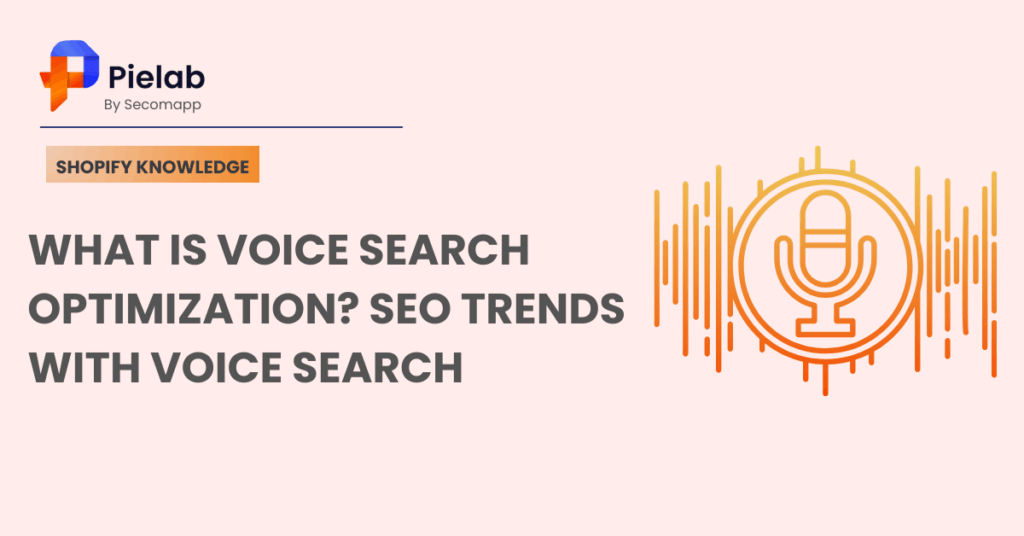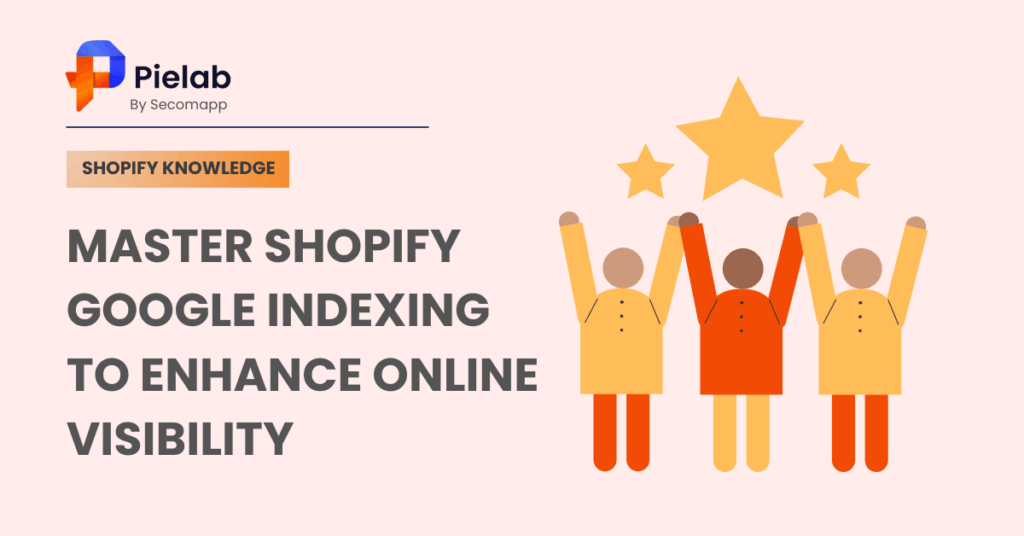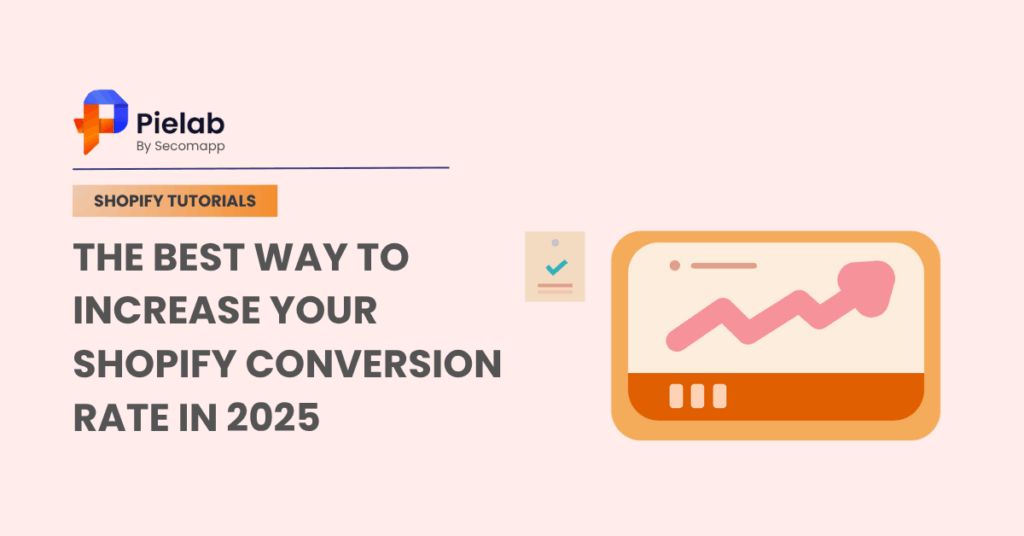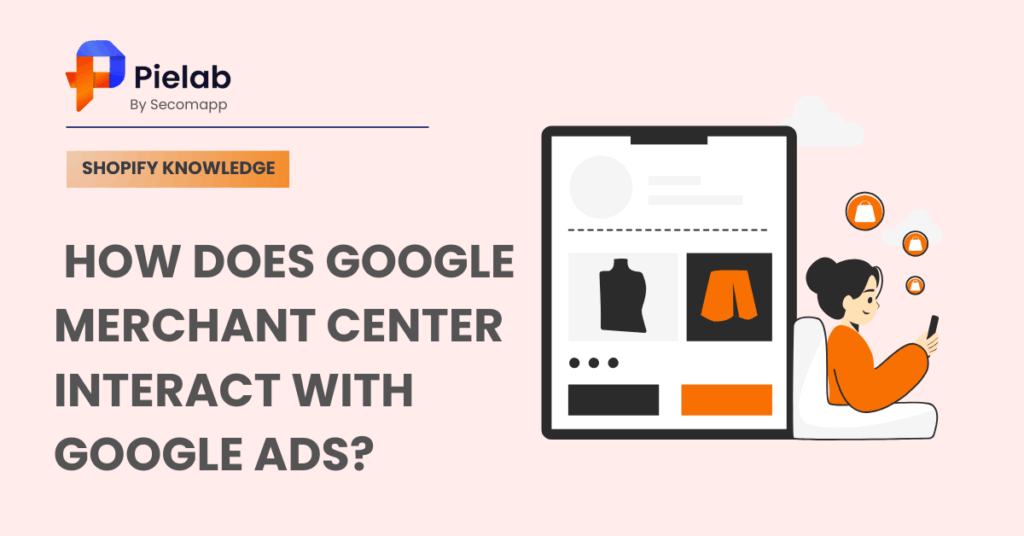When launching an online business, selecting a suitable Shopify plan is one of the first and most important decisions you’ll make. For new sellers, Shopify offers two budget-friendly options: the Shopify Starter vs. Shopify Basic. Both cater to early-stage entrepreneurs, but they differ greatly in terms of functionality, scalability, and long-term potential.
This article provides an in-depth comparison of Shopify Starter vs. Shopify Basic, helping you decide which plan aligns best with your goals, sales channels, and technical needs.
Overview: Shopify Starter Vs. Shopify Basic
Shopify Starter Plan
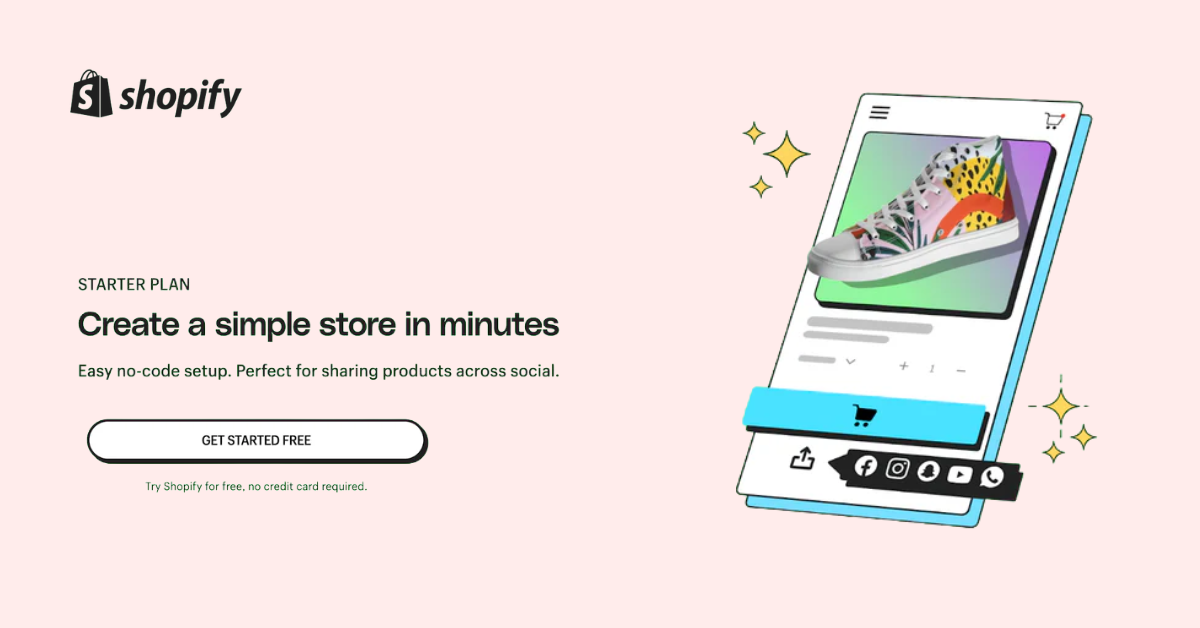
Shopify Starter Plan is the most basic and affordable option from Shopify. It’s designed for beginners or small sellers who want to start selling quickly without building a full online store. Instead of a complete website, it provides a simple checkout link and product page that can be shared through social media, messaging apps, or email.
Price:
Shopify Starter Plan is priced at $5 per month, billed every 30 days, making it one of the most affordable entry points for new sellers. To help beginners get started, Shopify also includes a 3-day free trial, allowing users to test the platform before committing.
Additional fees:
There are no setup fees or hidden charges, you simply pay the monthly subscription. However, if you choose to process payments through a third-party gateway such as PayPal or Stripe, Shopify applies a 5% transaction fee on top of the payment provider’s own charges.
Custom domain:
For those who want to use a branded domain, you’ll need to purchase one separately from a domain registrar like GoDaddy or Namecheap, typically costing around $10-$15 per year.
Shopify Basic Plan
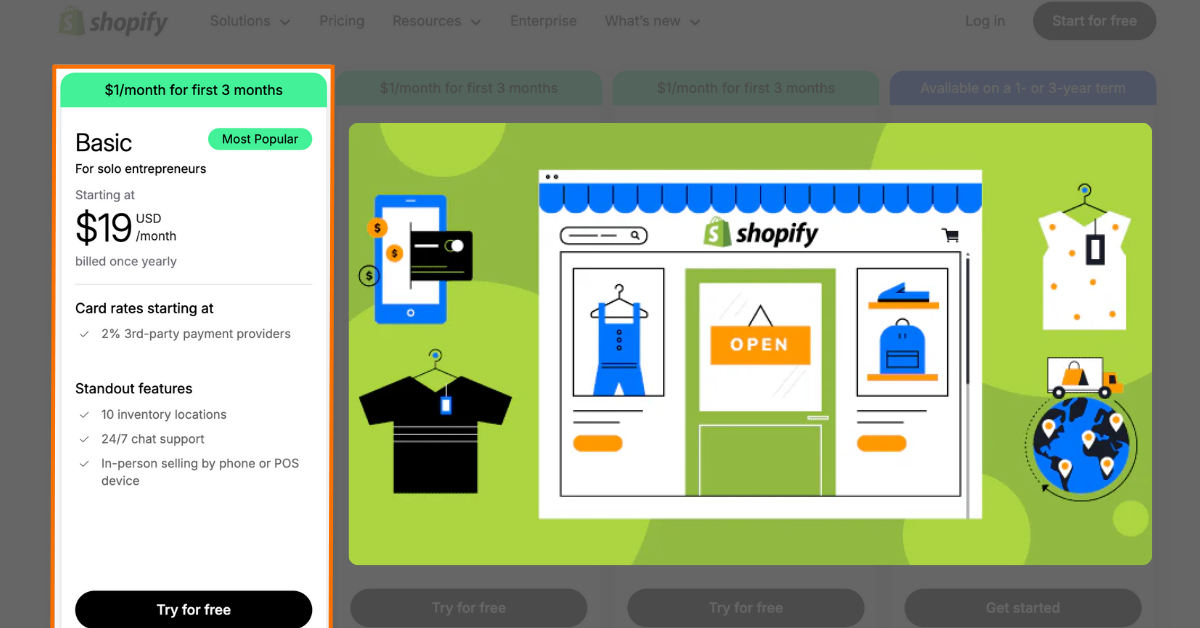
Shopify Basic Plan is the next step up from the Starter plan, designed for sellers who want to build a full online store with more tools to manage products, inventory, and customers. Unlike the Starter plan, it includes a complete website with customizable themes, a shopping cart, and access to Shopify’s core eCommerce features, making it ideal for small businesses ready to grow.
Price:
Shopify Basic is priced at $39 per month, billed every 30 days. Like other Shopify plans, it also comes with a 3-day free trial, so new users can test the platform before committing.
Additional fees:
There are no setup fees or hidden charges. If you process payments using Shopify Payments, you avoid extra transaction fees. However, if you use a third-party payment gateway like PayPal or Stripe, Shopify charges a 2% transaction fee in addition to the provider’s own fees.
Custom domain:
A free Shopify subdomain is included, but if you want to create a branded experience, you’ll need to purchase a custom domain separately (usually $10-$15 per year from registrars such as GoDaddy or Namecheap).
Shopify Starter Vs. Shopify Basic: Main features comparison
The comparison of Shopify Starter vs. Shopify Basic plan highlights that they are built for very different stages in the journey of selling online. While both give you access to Shopify’s trusted infrastructure, the scope of features and level of control you get varies greatly depending on the plan you choose.
Shopify Starter plan: Simple and budget-friendly for beginners
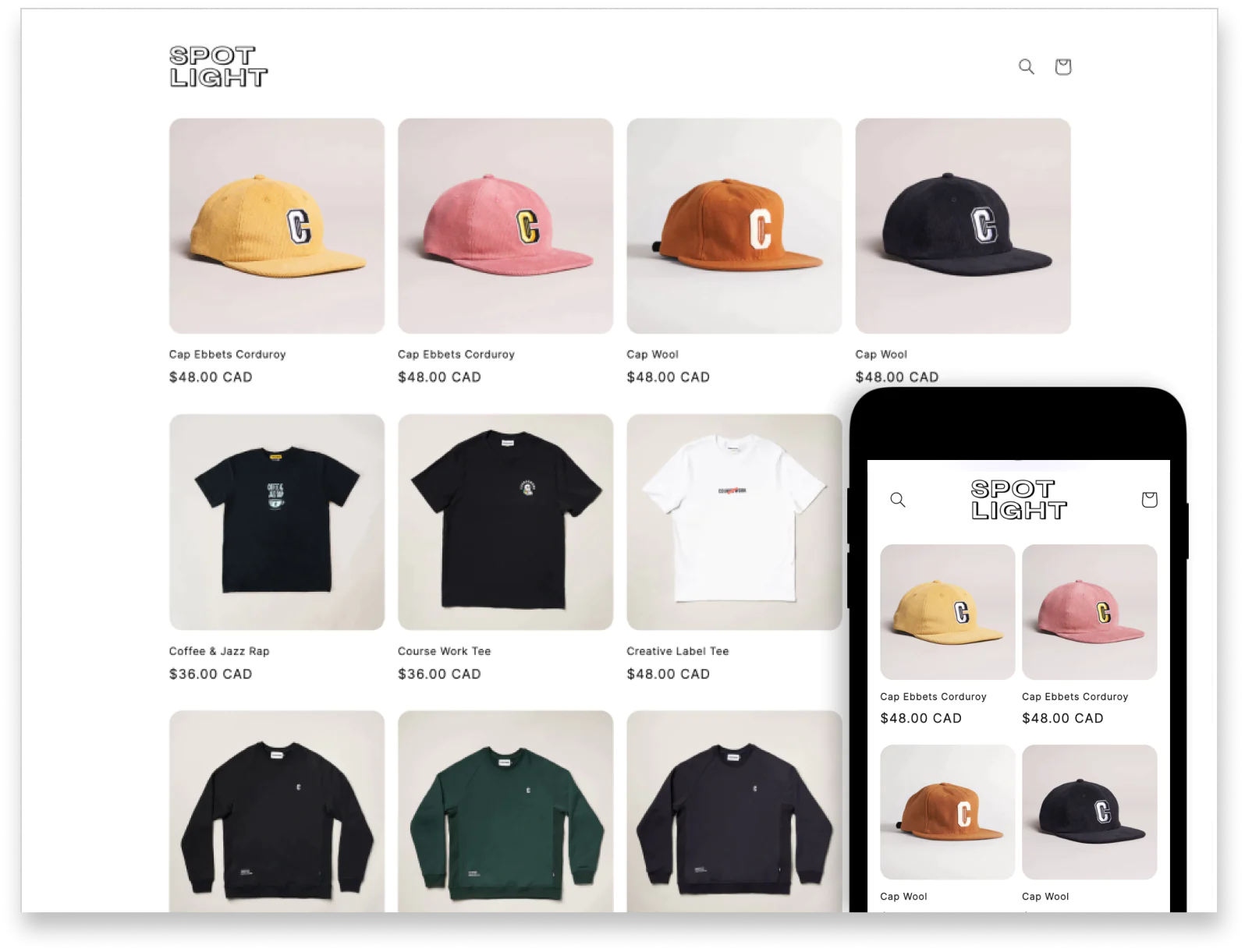
The Shopify Starter Plan is a lightweight option tailored for simple, social-first selling. It does not include a custom online store, blogging tools, or SEO capabilities. Instead, merchants can create shareable checkout links that work seamlessly on social media platforms, messaging apps, or email campaigns. This makes it ideal for creators, influencers, or small sellers who want to start selling quickly without the need for a full website.
However, functionality is intentionally limited: reports and analytics are minimal, access to the Shopify App Store is restricted, and features like discount codes, abandoned cart recovery, and customer profiles are not supported. Shipping and tax management remain basic, and merchants cannot add multiple staff members or connect a custom domain – clear distinctions to consider when comparing the Shopify Starter vs. Shopify Basic plan.
Shopify Basic plan: Full-featured solution for growing store
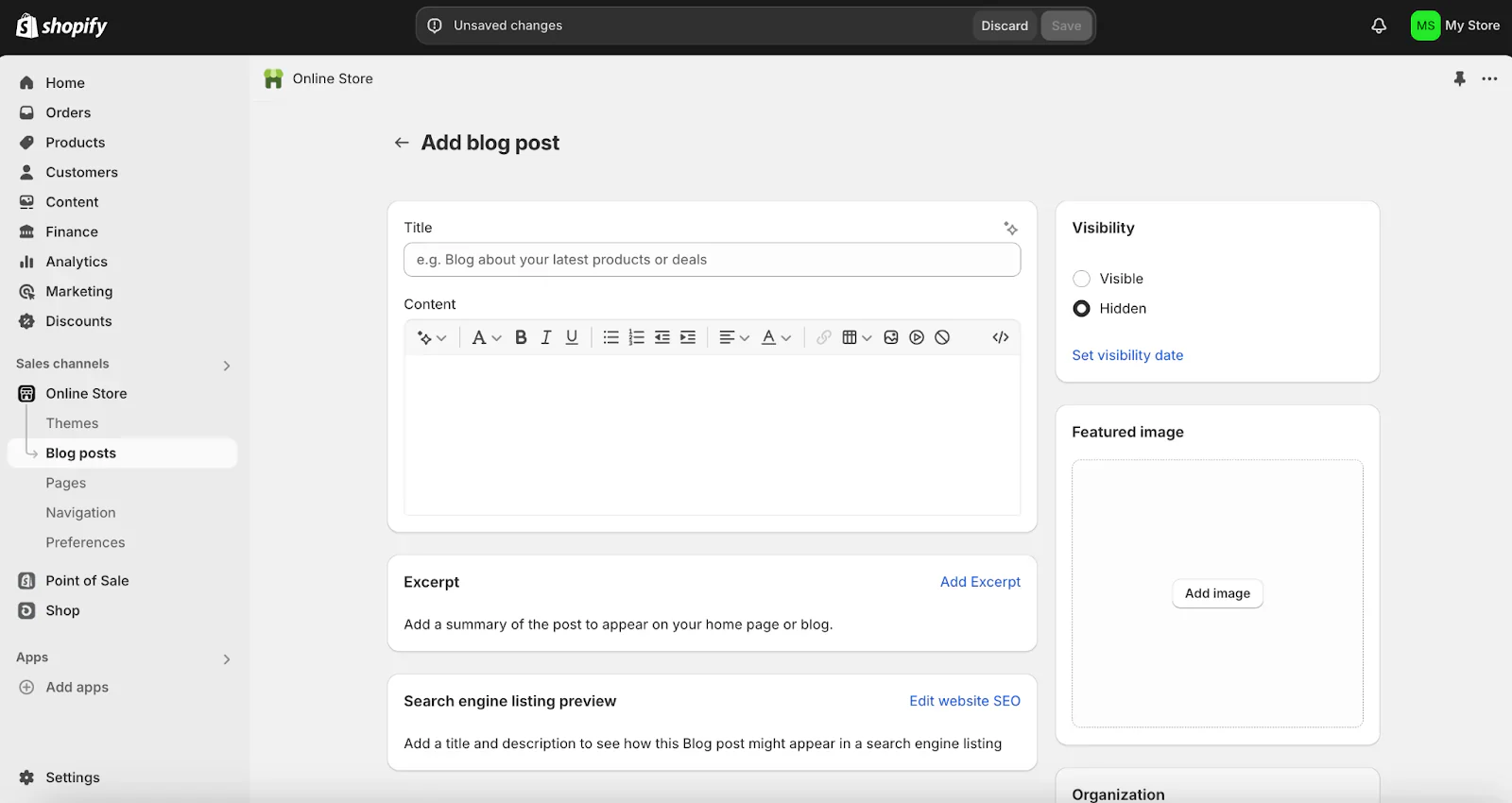
When comparing Shopify Starter vs. Shopify Basic Plan, the Shopify Basic Plan acts as the foundation for a comprehensive ecommerce store. Sellers can build a fully customizable website with an integrated checkout and attach their own branded domain, providing a more professional customer experience.
Beyond that, Shopify Basic unlocks important growth tools: blogging, SEO optimization, and discount codes help attract traffic and drive repeat sales, while abandoned cart recovery and customer profiles improve conversion and retention. Analytics are more detailed, with basic reports available to track store performance. Full access to the Shopify App Store allows merchants to install apps for marketing, reviews, or SEO, and up to two staff accounts can be added for team management.
Shopify Starter Vs. Shopify Basic: User experience comparison
Shopify Starter Plan: Intuitive for first-time users
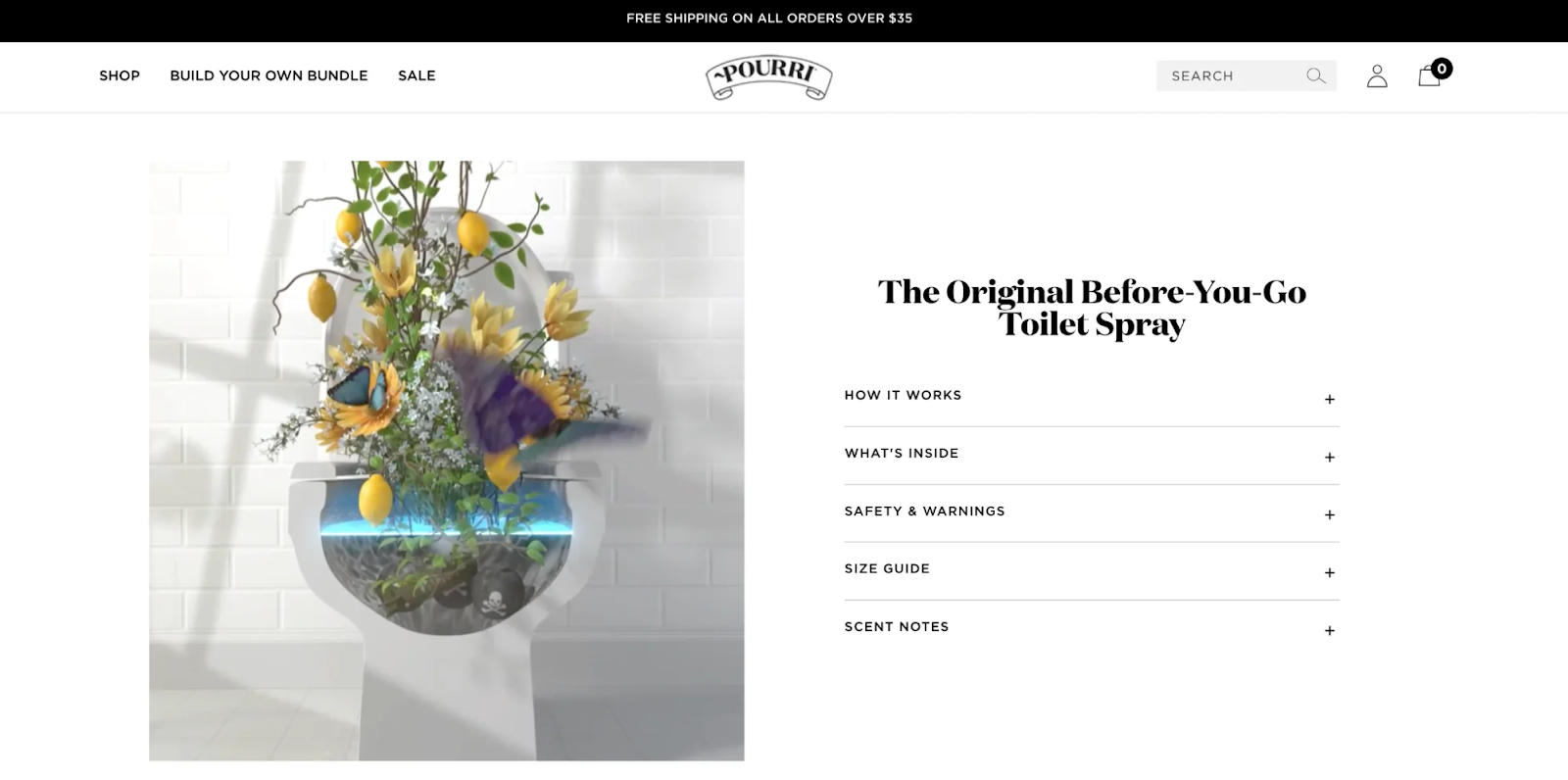
The Shopify Starter Plan is the entry-level option built for merchants who don’t need a full online store. Instead of designing a website, sellers get a simple product page and shareable checkout links, which they can promote on social media, messaging apps, or email.
The plan comes with basic shipping and tax settings but does not include key features like a blog, SEO tools, discount codes, or customer profiles. Since there’s no custom online store or advanced reporting, it’s best suited for creators, influencers, and small businesses that focus on link-based selling rather than running a complete ecommerce site.
What users like:
- Budget-friendly entry point at just $5/month, making it risk-free for beginners.
- Extremely easy to set up – Ideal for those with little to no technical skills.
- Perfect for social selling, since products can be promoted through platforms like Instagram or TikTok without building a website.
- No setup fees or upfront costs, just a simple monthly subscription.
What users dislike:
- No online storefront or branding control, which limits customer trust.
- Missing SEO tools, blogging, and content features, so organic growth isn’t possible.
- No discount codes, customer profiles, or abandoned cart recovery, which reduces sales potential.
- High 5% transaction fee when using third-party gateways like PayPal or Stripe, cutting into margins for sellers with larger volumes.
Shopify Basic Plan: Professional but easy to manage
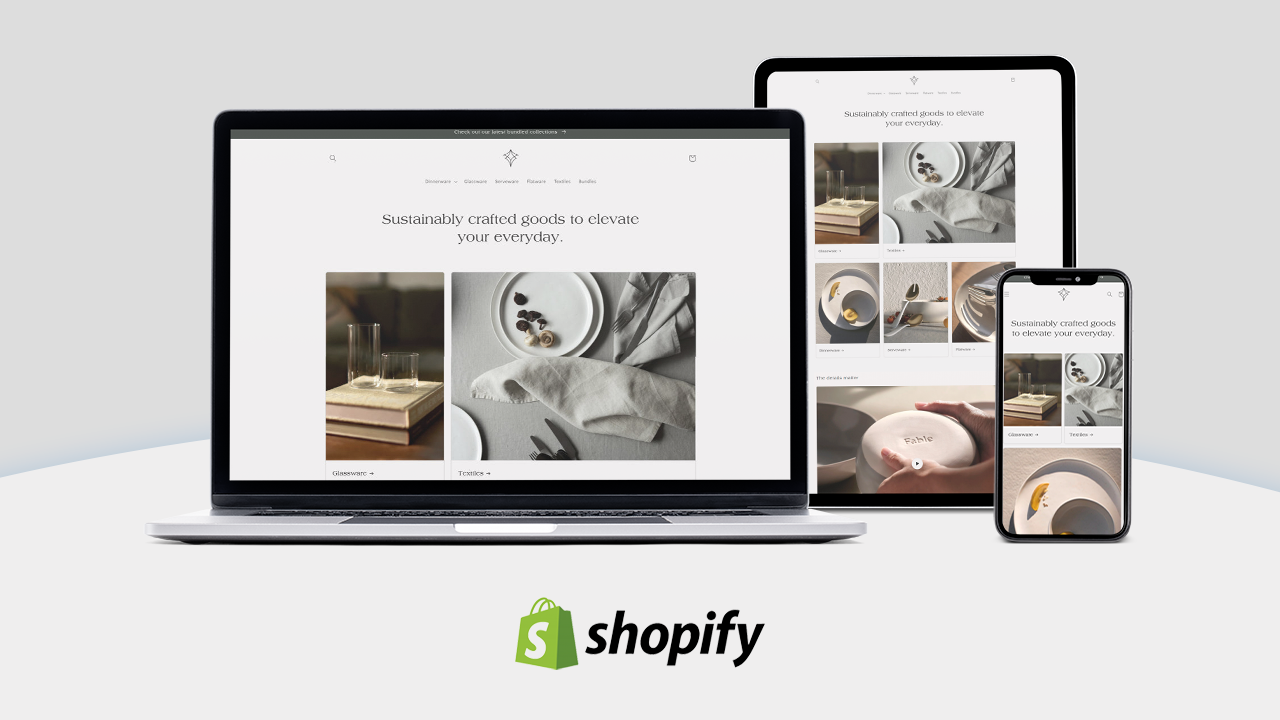
When comparing Shopify Starter vs. Shopify Basic Plan, the Shopify Basic Plan is the first real step into building a complete online store. For $39/month, sellers gain access to a customizable storefront, website-based checkout, and the ability to connect a custom domain. It also introduces essential ecommerce tools such as blogging, SEO settings, abandoned cart recovery, and discount codes, all of which help build credibility and attract organic traffic.
Merchants also get access to Shopify’s full App Store, which opens the door to tools like SearchPie (SEO), Loox (reviews), and Klaviyo (email). Reporting is included at a basic level, along with support for two staff accounts, making it suitable for small teams running day-to-day operations.
What users like:
- A professional online store with integrated checkout, boosting brand trust and improving conversions.
- Full access to the Shopify App Store, allowing customization and automation across marketing, SEO, and customer engagement.
- Growth features like discount codes, blogging, and SEO tools, which help stores build a brand and rank on Google.
- Lower transaction fees compared to Starter, plus support for multiple staff members managing the store.
What users dislike:
- At $39/month, the cost is significantly higher than Starter and may feel steep for very new sellers.
- The extra features add a steeper learning curve, especially for beginners who only need simple selling tools.
Shopify Starter vs Shopify Basic: Which plan is suitable for you?
When deciding between Shopify Starter vs. Shopify Basic, the choice usually comes down to your long-term goals. While the Starter plan is a convenient entry point for testing ideas or selling through social platforms, most users eventually lean toward the Basic plan because it offers a stronger balance of functionality, customization, and value for growth.
Choose Shopify Starter if:
- You focus mainly on social selling and don’t need a full website.
- You want to test or validate a product idea with minimal upfront cost.
- You’re an influencer or content creator who prefers link-based selling.
Choose Shopify Basic if:
- You want a professional online store with your own branded domain.
- You need tools like SEO, analytics, and abandoned cart recovery to grow.
- You’re ready to scale with marketing campaigns and advanced features.
Many merchants begin with Shopify Starter and later upgrade to Basic as their business expands. In fact, when comparing Shopify Starter vs. Shopify Basic plan, creators who build a loyal audience often move to Basic to strengthen their brand presence, improve conversions, and unlock more advanced ecommerce tools.
Final thoughts
Choosing between Shopify Starter vs. Shopify Basic depends largely on your business goals and how fast you plan to grow. The Starter plan is great for minimalist selling through social channels, while the Basic plan opens the door to building a complete online store with branding, content, and sales strategies. Whatever you choose, Shopify makes it easy to upgrade or switch plans as your business evolves.
